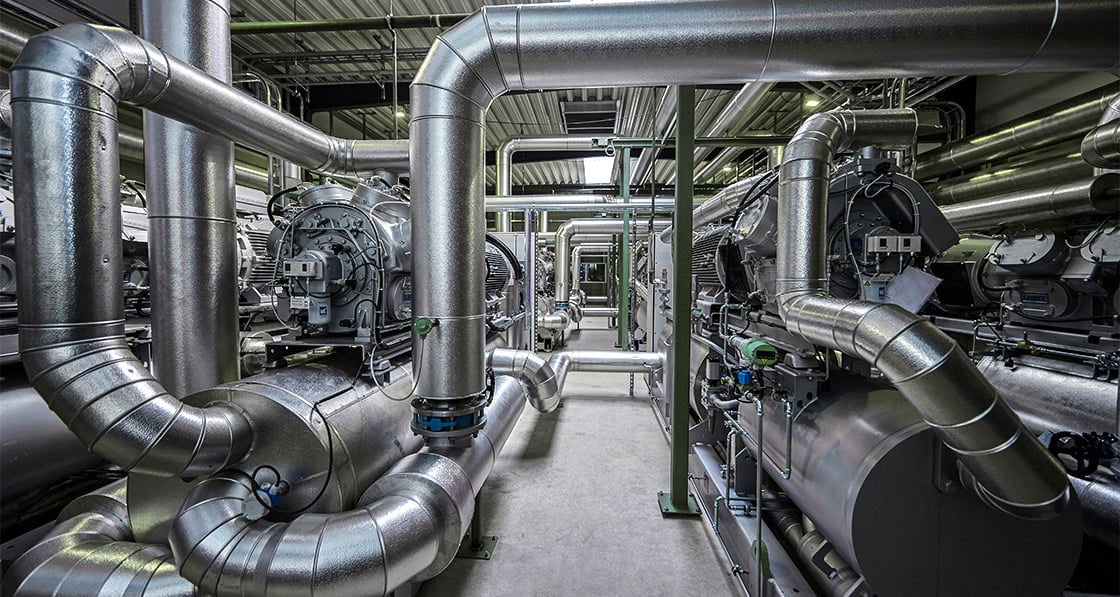Industrial Refrigeration Machinery
Industrial refrigeration is the process of cooling or freezing products or processes in industrial settings, such as food processing plants, pharmaceutical factories, chemical production facilities, and warehouses. Industrial refrigeration systems typically use a variety of refrigerants, such as ammonia, carbon dioxide, and hydrofluorocarbons (HFCs), to extract heat from a process or product and transport it away from the site.
Manjushree Industrial refrigeration systems can vary in complexity and size, depending on the specific application. They may consist of simple single-stage compression systems or complex multi-stage systems with several compressors, heat exchangers, and evaporators.
Some common components of industrial refrigeration systems include:
- Compressors: The compressor is the heart of the refrigeration system and compresses the refrigerant gas, raising its temperature and pressure.
- Condensers: The condenser is where the hot refrigerant gas is cooled and condensed back into a liquid, releasing heat into the environment.
- Evaporators: The evaporator is where the liquid refrigerant evaporates and absorbs heat from the process or product being cooled, providing cooling.
- Expansion devices: Expansion devices control the flow of the refrigerant and reduce its pressure, allowing it to expand and cool down.
Industrial refrigeration systems can be designed for various applications, including:
- Food processing and storage: Industrial refrigeration is commonly used to cool and store food products, such as meat, dairy, and fruits, and vegetables, to maintain freshness and quality.
- Chemical production: Industrial refrigeration can be used to cool chemical reactions and maintain product quality and safety.
- Pharmaceuticals: Industrial refrigeration is often used in pharmaceutical manufacturing and storage to maintain product integrity and safety.
The industrial-grade refrigeration units included in “Frosty Delights” are designed to provide maximum cooling power while remaining energy-efficient. This means that you’ll be able to enjoy the benefits of a powerful cooling system without having to worry about high energy bills.
Manjushree Industrial refrigeration systems typically use a refrigerant, such as ammonia or freon, to absorb and remove heat from the surrounding environment. These systems require specialized knowledge and training to operate safely and efficiently and are subject to strict regulations and safety standards.
Overall, industrial refrigeration plays a critical role in many industries and applications, providing essential cooling and freezing capabilities to ensure product quality, safety, and efficiency.
